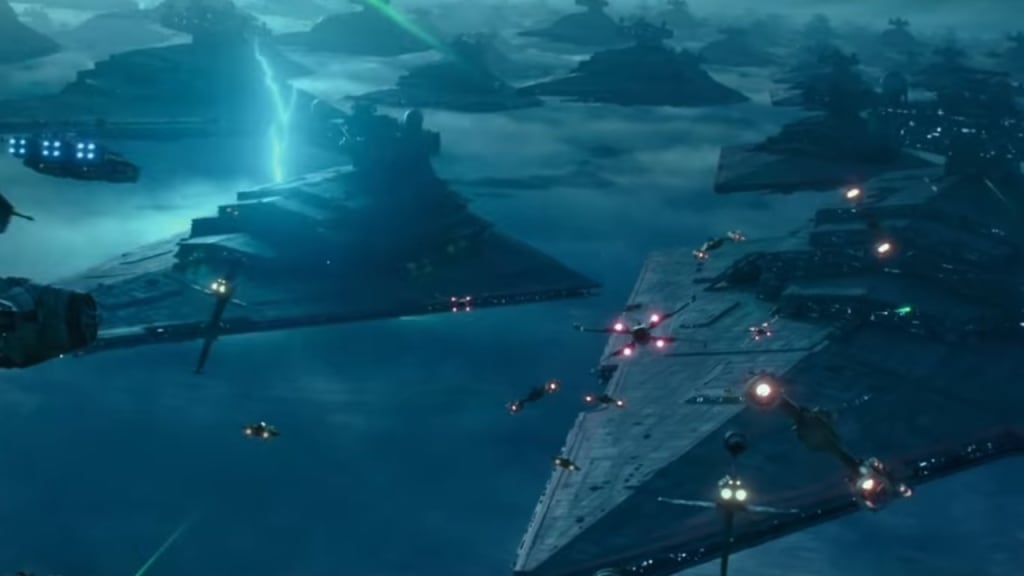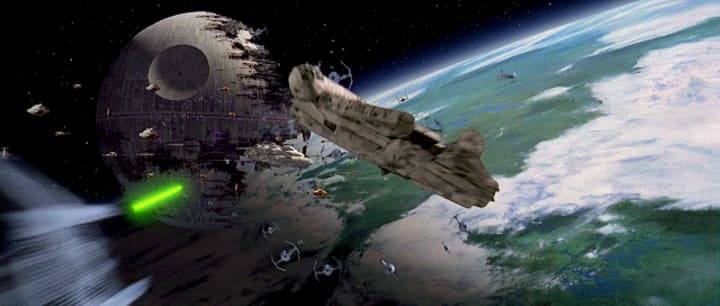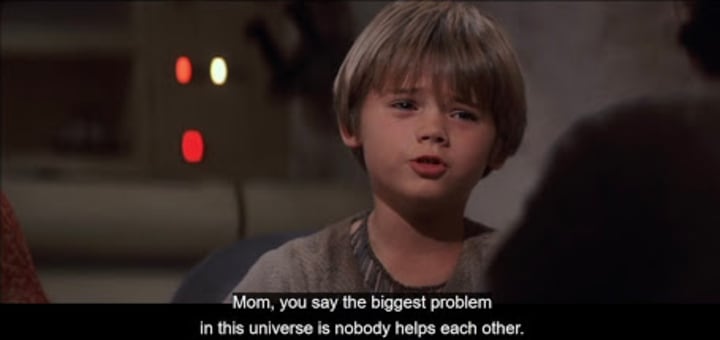How The Battle Of Endor Is Different From The Battle Of Exegol
Comparing and Contrasting

Endor and Exegol, two battles that were similar in many ways. Both saw the defeat of the Imperial forces. Both saw the death of the Emperor. Both involved the Emperor unleashing superweapons that could threaten the freedom of the galaxy if not brought to an end. However, despite the many similarities, thematically speaking they were very different. One told the story of how a rebellion defeated an empire. The other was a tale of how a galaxy standing up against tyranny. Two battles. Two themes.

The Battle of Endor in Return of the Jedi was known for years as the last great battle of the Star Wars Saga. It was the ultimate battle of good vs. evil and a battle for the soul of Darth Vader. However when one looked at the Battle of Endor in the context of the entire saga and the Expanded Universe, we see a very different picture of the battle. We see a galaxy sitting on the sidelines. The Empire went down after the destruction of the First Death Star. However, the war was far from over. The Empire still had massive resources and armies under their command, still controlled most of the galaxy. As the Rebellion grew, it was still very much a fledgling. There was no guarantee of victory and they did not have the public support of the galaxy. Endor in many ways was a spark that lit the blaze of uprisings across the galaxy. Essentially, Endor was not a galaxy coming to the rescue. It was a galaxy waiting on edge. Exegol was the opposite.
RELATED: How the Death Star Wiped Out the Ewoks After All

In Star Wars: Episode I - The Phantom Menace, Anakin said that the greatest problem of the galaxy was that no one helped each other. He dreamed that the world would be a different place if people could come together and help each other in times of need even if the odds were against them. Exegol was that such time. Palpatine had returned, and the First Order had already dominated much of the major galaxy in the. With the new combined threat of the Final Order and the Sith Eternal Fleet, everything seemed desperate. Despite the odds, the Resistance under Poe Dameron and Finn tried to fight against the Fleet on Exegol even though they did not have the numbers, nor really any chance of victory. If Endor seemed hopeless, Exegol was worse. Yet in that hour of need, a miracle happened. People showed up. Allies. Not a single navy, but the entire galaxy itself. Various factions and ships gathered just because they were tired. They were tired of the tyranny, tired of the Sith, tired of Palpatine. They had had enough and decided to do something about it. Anakin’s greatest hope came true, and the people of the galaxy decided to come together to help in the greatest hour of need.

The implication of Battle of Exegol is quite fascinating to think about. While Endor was a triumph of the official Rebel alliance against the Galactic Empire, the galaxy itself did not participate in that battle. The rest of the galaxy only tipped the scales of the war against the Empire once they knew the Emperor was dead, and that most of the major imperial leadership had been wiped out. This allowed for the victor, the Rebel Alliance, to take control and impose a new government system, which became the New Republic. On the other hand, there was no real hope for victory on Exegol. The Resistance as a force was far smaller than the Rebel Alliance during Endor. When the First Order was finally defeated at Exegol, there was no clear ruling government body who would rise up and take charge. The Resistance was not a formal institution that could easily replace or restore the Republic. Leia, the one person who could bring various factions together, was already gone. That single person might not exist at the moment. The future of the galaxy from this point onward seemed very uncertain indeed.
In the end, while Endor and Exegol felt and acted very similar thematically, they were very much different. One was a battle of two factions on the outskirts of the galaxy whose victory will determine the fate of the known universe. The other was the battle of the galaxy finally rising up and taking its destiny back into its own hands regardless of the cost. Despite their differences, both succeeded in bringing closure to their respective chapter in the history of the Star Wars universe.
READ NEXT: Was Darth Vader Really Redeemed?
Written By Joel Davis
Syndicated From Culture Slate






Comments
There are no comments for this story
Be the first to respond and start the conversation.